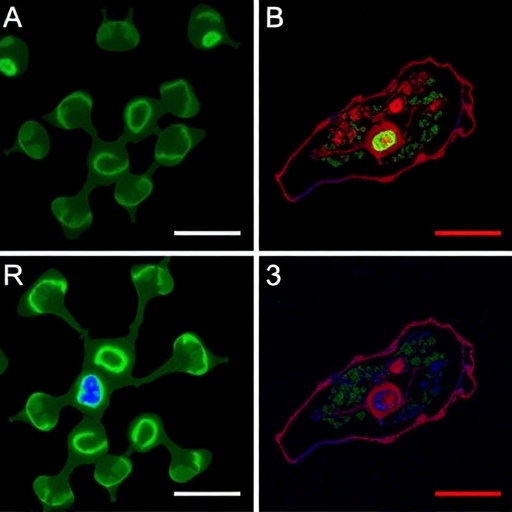Improved medications for Type 2 diabetes are one step closer thanks to a new discovery reported this week by researchers at the University of Pennsylvania and Syracuse University. By modifying the key ingredient in current diabetes drugs, the researchers produced a compound that was effective for hyperglycemia in animal trials, yet without the most problematic side effects of current drugs.
"Drug regimens often have long lists of side effects which negatively impact treatment," said Dr. Bart De Jonghe of University of Pennsylvania School of Nursing, one of the study leaders. "In Type 2 diabetes, nausea and vomiting top that list. It's the main reason people stop taking their diabetes medications, and diminishes quality of life for millions who do take them." De Jonghe and his collaborators presented their findings this week at the annual meeting of the Society for the Study of Ingestive Behavior, a leading international research conference for experts on eating behavior.
The rate of Type 2 diabetes, which is linked to obesity, has increased dramatically in recent decades. One widely prescribed class of drugs mimics the hormone glucagon-like peptide-1 (GLP-1) and is effective for controlling hyperglycemia. Yet all FDA-approved GLP-1 based drugs cause nausea and vomiting in between 20-50% of patients. The Penn-Syracuse team modified the active ingredient in current drugs, a compound called exendin-4. By attaching each molecule of exendin-4 to vitamin B-12, they produced a compound that is less absorbed into regions of the brain that trigger nausea and vomiting.
Having recently published that their exendin-4/B-12 conjugate improves blood sugar levels, the team's newest research addressed the issue of side effects. Measuring that in animal trials proved challenging, since lab rats and mice are unable to vomit. The researchers turned their attention to the musk shrew (Suncus murinus), a mouse-sized mammal with a vomiting reflex similar to humans. Their modifications made a striking difference in the shrews' response. Both versions of the drug showed equal benefits for controlling blood sugar, yet vomiting occurred in almost 90% of shrews dosed with ordinary exendin-4 and only 12% of shrews treated with the modified version.
"The vomiting results are striking and very encouraging," says De Jonghe. "It's rare to see such positive results with a new drug compared to the standard. It's hard to not be optimistic when you observe a complete flip in the side effect prevalence in favor of vastly improved tolerance."
Dr. Tito Borner a postdoctoral fellow in De Jonghe's group, performed additional experiments that explain the improvements in vomiting. The modified drug shows decreased activation of a brain area called the dorsal vagal complex. This primitive brain region is located in the hindbrain and is thought to coordinate many ingestive behaviors, including responses like vomiting to ensure survival.
Type 2 diabetes is the most common form of diabetes, affecting more than 25 million Americans. It occurs when the body stops responding properly to insulin, resulting in chronically high blood sugar. It is most common in people who are overweight or obese, and prevalence is highest in people of Native American, African-American, and Hispanic heritage. Left untreated, consequences of diabetes include circulatory damage, kidney disease, high blood pressure, and stroke. In addition to diet and exercise, physicians often recommend medication for its ability to quickly stabilize blood sugar. The Penn-Syracuse team's discovery could improve diabetes management by leading to a next generation of the FDA-approved medications that are better tolerated, reducing the number of people who cease medication due to adverse side effects.
###
Research citation:
Exendin-4 conjugated to vitamin B12 improves glucose tolerance in mice and shrews without inducing vomiting or hypophagia
T Borner1, E Shaulson1, LM Stein2, JL Workinger3, RB Jaime-Lara1, CG Liberini2, RP Doyle3,4, MR Hayes1,2, BC De Jonghe1
1Department of Biobehavioral Health Sciences, School of Nursing, University of Pennsylvania Philadelphia, PA, USA, 2Department of Psychiatry, Perelman School of Medicine, University of Pennsylvania Philadelphia, PA, USA, 3Department of Chemistry, Syracuse University Syracuse, NY, USA, 4Department of Medicine, Upstate Medical University, State University of New York Syracuse, NY, USA
Presented July 2018 at the Society for the Study of Ingestive Behavior, Bonita Springs, FL
Contact:
Bart De Jonghe, PhD
[email protected]
Media Contact
Melissa Szkodzinska
[email protected]
847-807-4924
@SSIBsociety
http://www.ssib.org
https://www.ssib.org/web/press2018.php




